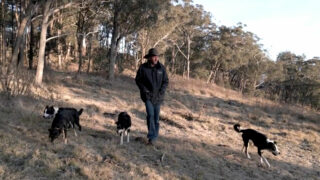The lovely Barb Barkley and I have just completed the first ever Global Team Coaching Institute’s (GTCI) training, led by the inimitable Peter Hawkins and David Clutterbuck, and complemented by a global coaching faculty like never seen before.
It was packed with usefulness that deserves to be shared.
What’s interesting first and foremost is the pair’s commitment to focus on organisational capability around teaming.
It’s not that individual executive work isn’t critical. It really is. It’s that teaming, and particularly executive teaming is becoming exponentially more important.
Here’s 10 reasons why:
- Every team we know is trying to do more with less at a faster pace. We need to build team capacity because the future is going to be more, not less challenging than the present or the past. It’s about productivity and personal sustainability.
- Our human tendency for heroic leaders is less helpful than ever. Complex problems (which our sector specialises in) require deep multi-stakeholder understanding. That can only be brought by a network of people. No one individual can ever hold this.
- Teams don’t need to be ‘high performing’ as a goal. That can lead to unnecessary investment. It’s a false goal. What they need to be in the social purpose sector is high value-creating.
- As leaders, our ability to leverage the value of our team is less about what’s between everyone’s ears (our intelligence) and more about what’s between our noses (our relational capabilities).
- Relational capabilities are not taught at school and are largely assumed through our working lives. (What we need as adults is brain-based experiential learning that we can apply immediately to the challenges we have right in front of us: effective feedback, constructive disagreement, unlocking value in those with different thinking and communication styles etc.)
- Each new group of people who come together are unique. The rituals, relationships, trust, common language and mutual understanding that drives our effectiveness has to be co-created.
- Teams are never stable. To be effective we need to know how to do good leavings and good arrivings. We need to keep flying the plane even as the people change. This doesn’t come naturally. We’ve never had to do it before.
- The time we spend together in team meetings needs to be focused on the right things at the right time. It’s not necessarily that we spend too much time in internal meetings, it’s that most executive team meetings aren’t achieving all that they need to in that time, whether its face to face or online.
- Firefighting and dealing with the urgent or easy is a deeply appropriate human tendency. Shifting gears to where we get the most value takes collective awareness, clarity and buy-in to the payoffs. That takes focus and a different kind of facilitation.
- And finally, great talent stays longer in effective teams. We need our good people to stay and contribute all that they are capable of. We need to develop a high Collective Team IQ, rather than our team IQ falling to the lowest common denominator, or at best the team average.
We’d love to hear from you. Why is effective teaming important to your organisation? What are the challenges you’re facing as we continue to navigate COVID and all the extra complexity that it’s bringing? If you’re a funder, how much is investment in team capability on your radar?
Leadership Space helps leadership teams to deliver all the value that their organisations require. Ours is a partnership with CEOs, Chairs, and Managers. It is grounded in research and brain-science, is relational and draws on our deep expertise in helping social purpose organisations steer effectively through growth and change. If you’re interested, please go here to get more of a sense of what we do and how it helps.
Article by Elise Sernik PCC, Founder and CEO, Leadership Space.
Elise is an executive and team coach, strategy consultant, leadership and culture change facilitator and trainer with a long history of specialising in the social purpose sector. She founded Leadership Space to help the sector fulfil its critical role in the Australian and global economy.







